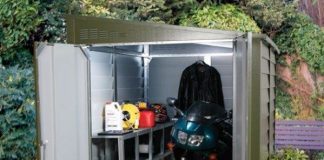Here’s the latest reader question, along with my reply!
Jody asks: I read an interesting article of yours posted on lewrockwell.com and saw the link about car questions. Are you familiar with Dodge Grand Caravans eating up brakes? I have a 2009 and the brakes don’t last more than 20k. Usually even the calipers have to be replaced. I do live in the northeast (road salt) and also sometimes tow a boat (1,500 lbs with trailer). I’m wondering if this is normal for these vehicles. Do newer models still do the same thing? I’m considering getting a newer one because I like the features but am spending a lot of money (about $1,200 every 20k miles) on brakes.My mechanic doesn’t have any clear answers.
My reply: Minivans are heavy – and hard on brakes; towing is also very hard on brakes, especially if the vehicle towing hasn’t got upgraded brakes. Overheating can warp rotors and, of course, the pads wear faster when used harder. Do you do a lot of downhill driving? If so, that would account for the rapid wear – though needing new pads (and rotors/calipers) every 20k or so is extreme.
A couple of suggestions:
Consider changing pads from whatever you’ve been using to something heavier-duty/higher-performance. You may notice the brakes don’t “bite” as well initially – but they will bite better as they warm up and they shouldn’t wear as rapidly.
Make sure about the weight of your trailer – and that your van is rated to comfortably handle it. Your van should be able to pull up to 3,500 pounds, assuming it is properly equipped. Make sure that it is. If it isn’t, that could be your problem – rather than the brakes.
Finally, I’d consider another mechanic. Unless you destroyed the brake system, $1,200 for a routine brake job is excessive. Assuming you didn’t wear the pads down to the wear indicators and score (or warp) the rotors, all you ought to need are new pads – which ought to cost a lot less than $1,200.
Please keep me posted!
. . .
Got a question about cars, Libertarian politics – or anything else? Click on the “ask Eric” link and send ’em in!
If you like what you’ve found here please consider supporting EPautos.
We depend on you to keep the wheels turning!
Our donate button is here.
If you prefer not to use PayPal, our mailing address is:
EPautos
721 Hummingbird Lane SE
Copper Hill, VA 24079
PS: Get an EPautos magnet or sticker or coaster in return for a $20 or more one-time donation or a $10 or more monthly recurring donation. (Please be sure to tell us you want a magnet or sticker or coaster – and also, provide an address, so we know where to mail the thing!)
My latest eBook is also available for your favorite price – free! Click here. If that fails, email me at [email protected] and I will send you a copy directly!











There is a fundamental issue with the manufacturer. I have a 2008 town and country but those were not Chinese steel. All models after then were made with the lowest bidder due to MOPARS takeover by Cerberus when they went into bankruptcy. I use the next to softest pads and am on my 3rd set for the front and 2nd set for the rear. The stealership mechanic said the rotors on the front were getting thin several years ago, so I have done it myself since then and had no issues. It has 144K and runs great.
It may be that the calipers are too big for the rotor. Bigger calipers generate more heat, and if the heat is too much, the rotors can get warped. So maybe drilled and slotted rotors to dissipate more heat. I know here in Australia Ford put big calipers on the BA Falcon without increasing rotor size, and the result was overheated and warped rotors on a frequent basis.
I’m not blaming your mechanic but he might be to blame. Several years ago cheaper brakes, esp. some of those brands made for national parts sales, only have one pad with springs to keep the pads pushed out.
There was a time you only had to grab a pad, stick in on and not worry about which one you had. Now you have to be careful to put the ONLY pad of a pair with a spring to keep the caliper pushed back from the rotor. Something is definitely not right with the vehicle or the way the brakes are mounted.
Not to mention that replacing disc brake pads & rotors is about as easy as changing a tire ….